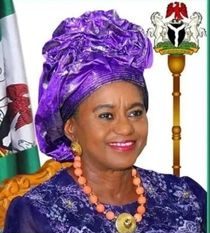Born on December 20, 1952, in Obuama, Degema Local Government Area of Rivers State, Ipalibo Gogo Banigo began her journey as a dedicated medical professional before breaking ground as a political trailblazer. Her career shows how expertise in public health can serve as a powerful springboard into leadership roles—and why women’s voices matter in Nigeria’s halls of power.
From Medicine to Public Health Leadership
After earning her Bachelor of Medicine, Bachelor of Surgery (MBBS) from the University of Ibadan and post-graduate training at University College Hospital, Ibadan, Banigo returned to Rivers State to serve as Registrar of Births and Senior Medical Officer-in-Charge at the Rivers State Port Health Service (1979–1984) Punch. Over the next decade, she took on roles including Honorary Consultant Dermatologist at the University of Port Harcourt and Principal of the Rivers State School of Health Technology, where she helped train the next generation of health workers African Leadership Magazine.
Her steady rise within the Ministry of Health culminated in a series of senior appointments—Director of Public Health Services, Acting Commissioner, Director-General, and Permanent Secretary—where she led policy development, supervised statewide health programs, and coordinated with international partners on initiatives like UNICEF and UNFPA projects DBpedia Association.
First Female Deputy Governor of Rivers State (2015–2023)
In December 2014, Governor-elect Ezenwo Nyesom Wike chose Dr. Banigo as his running mate on the People’s Democratic Party ticket. The Wike-Banigo ticket won by a landslide on April 11, 2015—making her the first woman ever to serve as Deputy Governor of Rivers State {{both 87.8% of the vote) Wikipedia Wikipedia.
Sworn in on May 29, 2015, Banigo partnered with Governor Wike to:
- Overhaul Primary Health Care: She led efforts to renovate rural clinics and extend immunization programs to hard-to-reach communities.
- Strengthen Maternal and Child Health: Under her watch, Rivers State rolled out free antenatal services and trained hundreds of midwives.
- Coordinate Disaster Relief: As Chair of the Rivers State Relief Committee, she organized emergency responses to flood and erosion crises, ensuring swift delivery of food, medical supplies, and shelter African Leadership Magazine.
Her tenure blended hands-on oversight—visiting facilities, meeting health workers, and hosting community forums—with strategic policy leadership, setting new standards for collaboration between state and federal health agencies.
Triumph in the Senate Race (2023)
After eight years as Deputy Governor, Dr. Banigo set her sights on the National Assembly. Running on the PDP platform in February 2023, she contested the Rivers West Senatorial District seat. Voters made history again: she defeated her APC rival, Hon. Asita, to become the first woman elected Senator for that district African Leadership Magazine.
In the Senate, she was appointed Chair of the Senate Committee on Women’s Affairs, charged with crafting legislation to advance gender equality, protect women’s rights, and expand economic opportunities for Nigerian women nationwide.
Legislative Focus and Key Initiatives
In her first year as Senator, Hon. Banigo has:
- Sponsored the Gender Parity Bill, which seeks to require political parties to field at least 35% female candidates in general elections.
- Championed Rural Health Infrastructure, securing federal funding to upgrade primary health centers and install solar-powered cold-chain systems for vaccine storage.
- Launched a National “Protect the Girl Child” Campaign, rallying civil-society groups and state governments to end child marriage and improve school retention for girls African Leadership Magazine.
Her engineering of policy blends her medical background with practical solutions—publishing quarterly reports on health outcomes and holding town-hall hearings in every local government area of Rivers West.
A Beacon for the 35% Project
Dr. Ipalibo Banigo’s story embodies the goals of The 35% Project: transforming expertise into leadership, breaking gender barriers, and delivering measurable community impact. From clinic corridors to the deputy governor’s office and now to the Senate floor, she demonstrates that qualified women leaders can reshape Nigeria’s future—and that real change happens when representation reaches beyond token gestures to concrete, data-driven action.
